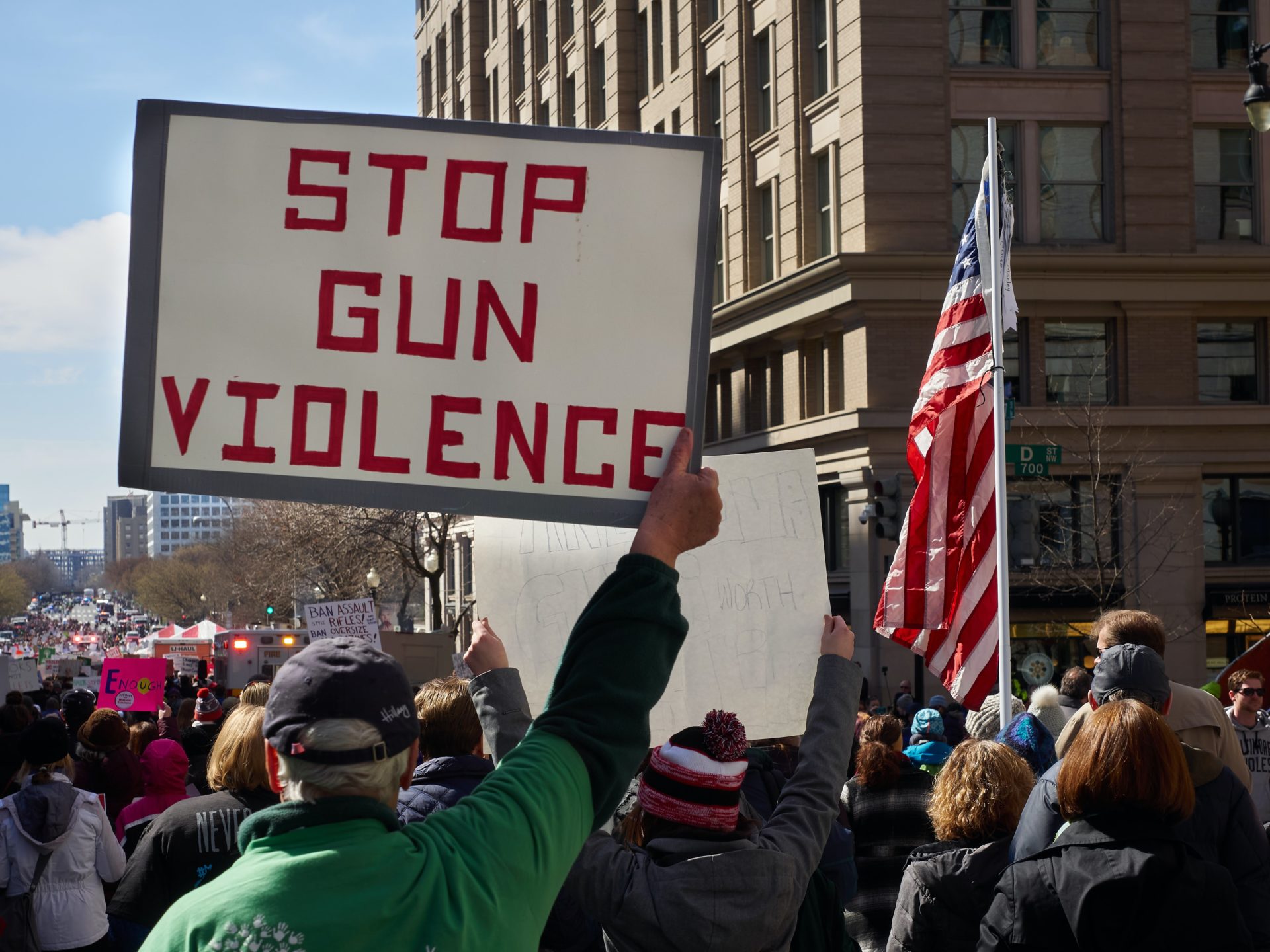
Photo by Chip Vincent on Unsplash
America’s existential crisis
Then our government shows us what it values by agreeing to spend over three hundred million dollars to assist in fighting a war overseas. All while babies in our own country go hungry, as people live and die on our streets, and while violence continues to be groomed and grow in our own backyard. For me, this raises the question, do they care? Those who are voted into office and sent to Washington to represent our interests, do they care about the lives of the citizens of this country?
In this type of toxic atmosphere, an 18-year-old boy can plan and decisively carry out a terrorist act of violence on a vulnerable community. When will the violence end? Many have voiced concerns for their safety, at home and in public.
Some lobby for gun control, believing this to be the answer to the violence and the hate that persists. Those of this persuasion would be considered realists. Realists accept a situation as it is and are prepared to deal with it accordingly. I submit that a realist would be ready to deal with or attack violence with more violence, believing that the one with the most guns would win. Some realists may argue that a ban on gun manufacturing would be the answer to the violence that exists.
Some believe that perhaps more laws are the solution to America’s existential crisis of violence. In addition, some suggest that developing a task force to combat racial hate crimes is the solution to a problem that is deeply ingrained in the soul of this nation. While task forces exist in several states, and do important work on investigating, deterring, and preventing hate crimes, task forces alone are not the path to achieving peace.
This conundrum raises the question, is peace at all possible? Perhaps I am an idealist, who believes peace is possible. However, I am also aware that it will not happen just because we want it. Peace is not something that will happen if we turn our heads and look the other way. It is not going to simply manifest because we have prayer vigils for victims of violence, give words of comfort, and walk away doing nothing. I believe the answer is a combination of realist and idealist responses.
Romans 12:18 states, “If it is possible, as much as depends on you, live peaceably with all.” The work of peace is indeed that, work. The answer to living in peace with everyone, I believe, is in the same chapter: “Therefore ‘If your enemy is hungry, feed him. If he is thirsty, give him a drink; For in so doing you will heap coals of fire on his head.’ Do not be overcome by evil, but overcome evil with good.” (Romans 12:20-21 WEB). If I were an extreme idealist, I would stop there and suggest that we go home and do likewise. However, being an idealist is not enough. I submit that the work of living peaceably with everyone is not only the work of those who have been attacked. It is the work of all who want to see a better world. It is a work that requires my Caucasian brothers and sisters to step up and face the reality that sitting back is not the answer but the problem. When you do nothing, it is the same as condoning acts of violence. This work of peace will necessitate more than simply showing up at prayer vigils and saying we are sorry. It will require more.
To make a difference in America’s existential crisis of violence will demand change. Incorporating Jesus’ teaching on being the salt of the earth is a great place for change to begin. We are aware that salt changes the way things taste. It appears that America has a taste for violence. To significantly change our taste for violence, the focus must be on nurturing peace. Here is where the idealist and realist must meet. Laws that restrict guns will be helpful. However, hearts are not legislated by laws. From the perspective of an idealist, we must love one another. In the words of Martin Luther King, “we must learn to live together as brothers or perish together as fools.”
Learning to live together will involve caring for one another. The senseless acts of violence can be, I believe, minimized and ultimately extinguished by random acts of kindness from all of us. Romans 12 has what I believe is the key to this senseless act of violence: we must care for and about one another. We must care enough to endure the momentary discomfort of dislike to get to the bond that bridges gaps and builds peace. May we find the strength to rise and care for one another, even those who spew hate. To remain complacent is to allow future generations to be handicapped by the present. The future deserves better. Our children deserve better.
The views expressed are those of the author and not necessarily those of American Baptist Home Mission Societies.



